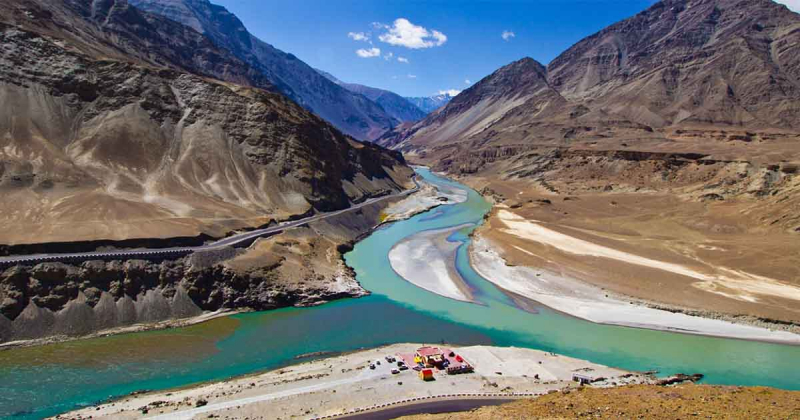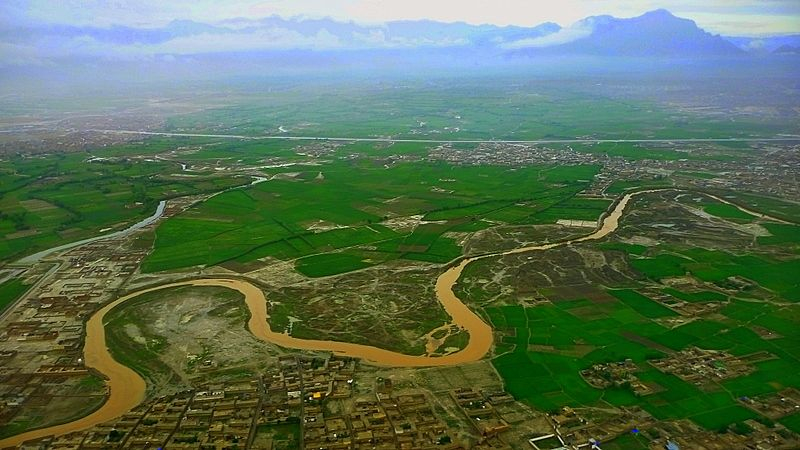Kabul

The Kabul River is a 700-kilometer-long (430-mile) river in South Asia that originates in Afghanistan's Sanglakh Range of the Hindu Kush mountains and is separated from the Helmand River's basin by the Unai Pass. Near Attock, Pakistan, the Kabul River falls into the Indus River. It is the main river in eastern Afghanistan and Pakistan's Khyber Pakhtunkhwa region.
The Kabul River, which is 700 kilometers long, flows through Kabul, Surobi, and Jalalabad in Afghanistan and forms large drainage of the eastern provinces of Nangarhr, Kunar, Lamn, Lgar, Kabul, Kpis, Parvn, Panjr, and Bmin before entering Khyber Pakhtunkhwa in Pakistan about 25 kilometers (16 mi) north of the Durand Line border crossing at Torkham. The river runs through Peshawar, Charsadda, and Nowshera in Khyber Pakhtunkhwa. It is known as the Sarchashma in its higher reaches. The Logar, Panjshir, Alingar, Surkhab, Kunar, Bara, and Swat rivers are important tributaries of the Kabul River.
For most of the year, the Kabul River is nothing more than a trickle, but it surges in summer due to melting snows in the Hindu Kush Range. Its main tributary is the Kunar River, which originates as the Mastuj River and flows from the Chiantar glacier in the Brughil valley in Chitral, Pakistan, before meeting the Bashgal River in Nurestan. Near Jalalabad, the Kunar meets the Kabul. Despite the fact that the Kunar carries more water than the Kabul, the river continues as the Kabul River after this confluence, owing to the name's political and historical importance.
Total Length: 435 miles









